 W
WIn Internet culture, the 1% rule is a rule of thumb pertaining to participation in an internet community, stating that only 1% of the users of a website add content, while the other 99% of the participants only lurk. Variants include the 1–9–90 rule, which states that in a collaborative website such as a wiki, 90% of the participants of a community only consume content, 9% of the participants change or update content, and 1% of the participants add content.
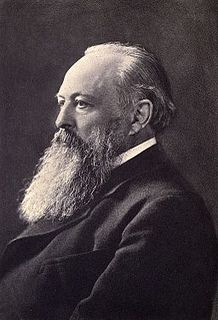 W
WJohn Emerich Edward Dalberg-Acton, 1st Baron Acton, 13th Marquess of Groppoli,, better known as Lord Acton, was an English Catholic historian, politician, and writer. He was the only son of Sir Ferdinand Dalberg-Acton, 7th Baronet, and a grandson of the Neapolitan admiral and prime minister Sir John Acton, 6th Baronet. Between 1837 and 1869 he was known as Sir John Dalberg-Acton, 8th Baronet.
 W
WAdagia is the title of an annotated collection of Greek and Latin proverbs, compiled during the Renaissance by Dutch humanist Desiderius Erasmus Roterodamus. Erasmus' collection of proverbs is "one of the most monumental ... ever assembled".
 W
WLeo Leroy Beranek was an American acoustics expert, former MIT professor, and a founder and former president of Bolt, Beranek and Newman. He authored Acoustics, considered a classic textbook in this field, and its updated and extended version published in 2012 under the title Acoustics: Sound Fields and Transducers. He was also an expert in the design and evaluation of concert halls and opera houses, and authored the classic textbook Music, Acoustics, and Architecture, revised and extended in 2004 under the title Concert Halls and Opera Houses: Music, Acoustics, and Architecture.
 W
W"The best defense is a good offense" is an adage that has been applied to many fields of endeavor, including games and military combat. It is also known as the strategic offensive principle of war. Generally, the idea is that proactivity instead of a passive attitude will preoccupy the opposition and ultimately hinder its ability to mount an opposing counterattack, leading to a strategic advantage.
 W
WBushnell's Law or Nolan's Law is an aphorism often attributed to Atari founder Nolan Bushnell, on the subject of video game design:All the best games are easy to learn and difficult to master. They should reward the first quarter and the hundredth.
 W
WHoward G. Cunningham is an American computer programmer who developed the first wiki and was a co-author of the Manifesto for Agile Software Development. A pioneer in both design patterns and extreme programming, he started coding the WikiWikiWeb in 1994, and installed it on c2.com on March 25, 1995, as an add-on to the Portland Pattern Repository. He co-authored a book about wikis, entitled The Wiki Way, and invented the Framework for Integrated Tests.
 W
WThe Deutsch limit is an aphorism about the information density of visual programming languages originated by L. Peter Deutsch that states:The problem with visual programming is that you can’t have more than 50 visual primitives on the screen at the same time.
 W
WIn ecology, a feeding frenzy occurs when predators are overwhelmed by the amount of prey available. The term is also used as an idiom in the English language.
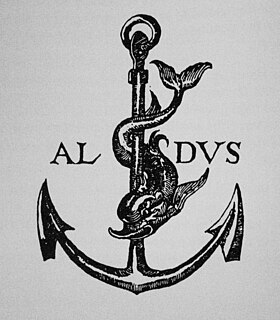 W
WFestina lente or speûde bradéōs is a classical adage and oxymoron meaning "make haste slowly". It has been adopted as a motto numerous times, particularly by the emperors Augustus and Titus, the Medicis and the Onslows.
 W
WThe first law of holes, or the law of holes, is an adage which states: "if you find yourself in a hole, stop digging". Digging a hole makes it deeper and therefore harder to get out of, which is used as a metaphor that when in an untenable position, it is best to stop making the situation worse. More generally, it advises how one should solve problems of their own making.
 W
WGodwin's law, short for Godwin's law of Nazi analogies, is an Internet adage asserting that as an online discussion grows longer, the probability of a comparison involving Nazis or Adolf Hitler approaches 1. In less mathematical terms, the longer the discussion, the more likely a Nazi comparison becomes, and with long enough discussions, it is a certainty.
 W
WHanlon's razor is an adage or rule of thumb that states "never attribute to malice that which is adequately explained by stupidity". Known in several other forms, it is a philosophical razor that suggests a way of eliminating unlikely explanations for human behavior. It is likely named after Robert J. Hanlon, who submitted the statement to a joke book. Similar statements have been recorded since at least the 18th century.
 W
W"It ain't over till the fat lady sings" is a colloquialism which is often used as a proverb. It means that one should not presume to know the outcome of an event which is still in progress. More specifically, the phrase is used when a situation is nearing its conclusion. It cautions against assuming that the current state of an event is irreversible and clearly determines how or when the event will end. The phrase is most commonly used in association with organized competitions, particularly sports.
 W
WHelen Lewis is a British journalist and a staff writer at The Atlantic. She is a former deputy editor of the New Statesman, and has also written for The Guardian and The Sunday Times.
 W
WMonkey see, monkey do is a pidgin-style saying that was already called an "old saying" in 1900. The saying refers to the learning of a process without an understanding of why it works. Another definition implies the act of imitation, usually with limited knowledge and/or concern for the consequences.
 W
W"No purchase, no pay" was a phrase used by pirates and privateers, of the 17th century in particular, to describe the conditions under which participants were expected to join expeditions or raids. The phrase describes a remuneration arrangement similar to a commission.
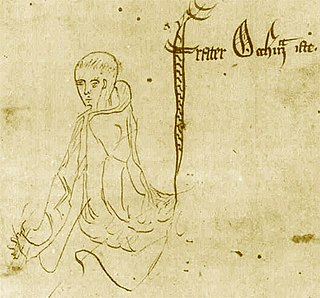 W
WOccam's razor, Ockham's razor, Ocham's razor, or the principle of parsimony or law of parsimony is the problem-solving principle that "entities should not be multiplied beyond necessity", sometimes inaccurately paraphrased as "the simplest explanation is usually the best one." The idea is frequently attributed to English Franciscan friar William of Ockham, a scholastic philosopher and theologian, although he never used these words. This philosophical razor advocates that when presented with competing hypotheses about the same prediction, one should select the solution with the fewest assumptions, and that this is not meant to be a way of choosing between hypotheses that make different predictions.
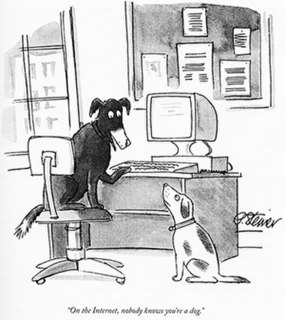 W
W"On the Internet, nobody knows you're a dog" is an adage and Internet meme about Internet anonymity which began as a caption to a cartoon drawn by Peter Steiner and published by The New Yorker on July 5, 1993. The words are those of a large dog sitting on a chair at a desk, with his paw on the keyboard of the computer before him, speaking to a smaller dog sitting on the floor beside him. Steiner had earned between $200,000 and $250,000 by 2013 from its reprinting, by which time it had become the cartoon most reproduced from The New Yorker.
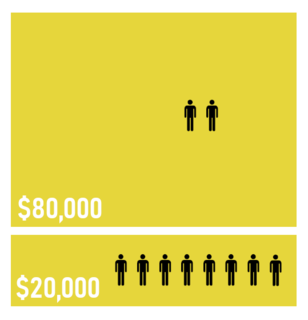 W
WThe Pareto principle states that for many outcomes, roughly 80% of consequences come from 20% of causes. Other names for this principle are the 80/20 rule, the law of the vital few, or the principle of factor sparsity.
 W
WParkinson's law is the adage that "work expands so as to fill the time available for its completion." It is sometimes applied to the growth of bureaucracy in an organization.
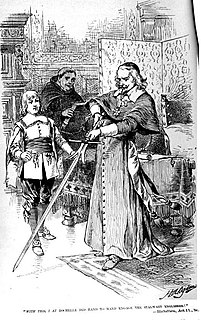 W
W"The pen is mightier than the sword" is a metonymic adage, created by English author Edward Bulwer-Lytton in 1839, indicating that the written word is more effective than violence as a tool for communicating a point. In some interpretations, written communication can refer to administrative power or an independent news media.
 W
WThe Peter principle is a concept in management developed by Laurence J. Peter, which observes that people in a hierarchy tend to rise to "a level of respective incompetence": employees are promoted based on their success in previous jobs until they reach a level at which they are no longer competent, as skills in one job do not necessarily translate to another.
 W
WThe Pottery Barn rule is an American expression alluding to a policy of "you break it, you bought it" or "you break it, you buy it" or "you break it, you remake it", by which a retail store holds a customer responsible for damage done to merchandise on display. It generally "encourages customers to be more careful when handling property that's not theirs". It is an analogy often used in the political or military arena to suggest that if an actor inadvertently creates a problem, the actor is obliged to provide the resources necessary to correct it.
 W
WJohn Emerich Edward Dalberg-Acton, 1st Baron Acton, 13th Marquess of Groppoli,, better known as Lord Acton, was an English Catholic historian, politician, and writer. He was the only son of Sir Ferdinand Dalberg-Acton, 7th Baronet, and a grandson of the Neapolitan admiral and prime minister Sir John Acton, 6th Baronet. Between 1837 and 1869 he was known as Sir John Dalberg-Acton, 8th Baronet.
 W
WJohn Emerich Edward Dalberg-Acton, 1st Baron Acton, 13th Marquess of Groppoli,, better known as Lord Acton, was an English Catholic historian, politician, and writer. He was the only son of Sir Ferdinand Dalberg-Acton, 7th Baronet, and a grandson of the Neapolitan admiral and prime minister Sir John Acton, 6th Baronet. Between 1837 and 1869 he was known as Sir John Dalberg-Acton, 8th Baronet.
 W
WThe common phrase "red sky at morning" is a line from an ancient rhyme often repeated by mariners:
 W
WThe Sagan standard is a neologism abbreviating the aphorism that "extraordinary claims require extraordinary evidence" (ECREE). It is named after science communicator Carl Sagan who used the exact phrase on his television program Cosmos.
 W
WThe Streisand effect is a phenomenon that occurs when an attempt to hide, remove, or censor information has the unintended consequence of increasing awareness of that information, often via the Internet. It is named after American singer Barbra Streisand, whose attempt to suppress the California Coastal Records Project photograph of her residence in Malibu, California, taken to document California coastal erosion, inadvertently drew greater attention to it in 2003.
 W
W"This too shall pass" is a Persian adage translated and used in several languages. It reflects on the temporary nature, or ephemerality, of the human condition. The general sentiment is often expressed in wisdom literature throughout history and across cultures, but the specific phrase seems to have originated in the writings of the medieval Persian Sufi poets.
 W
WIn the social sciences, unintended consequences are outcomes of a purposeful action that are not intended or foreseen. The term was popularised in the twentieth century by American sociologist Robert K. Merton.
 W
WRichard William Wheaton III is an American actor, blogger, and writer. He portrayed Wesley Crusher on the television series Star Trek: The Next Generation, Gordie Lachance in the film Stand by Me, Joey Trotta in Toy Soldiers, and Bennett Hoenicker in Flubber. Wheaton has also appeared in recurring voice acting roles as Aqualad in Teen Titans, Cosmic Boy on the Legion of Super Heroes, and Mike Morningstar/Darkstar in the Ben 10 universe. He appeared regularly as a fictionalized version of himself on the sitcom The Big Bang Theory and in the roles of Fawkes on The Guild, Colin Mason on Leverage, and Dr. Isaac Parrish on Eureka. Wheaton was the host and co-creator of the YouTube board game show TableTop. He has narrated numerous audio books, including Ready Player One and Ready Player Two.
 W
WWhen life gives you lemons, make lemonade is a proverbial phrase used to encourage optimism and a positive can-do attitude in the face of adversity or misfortune. Lemons suggest sourness or difficulty in life; making lemonade is turning them into something positive or desirable.